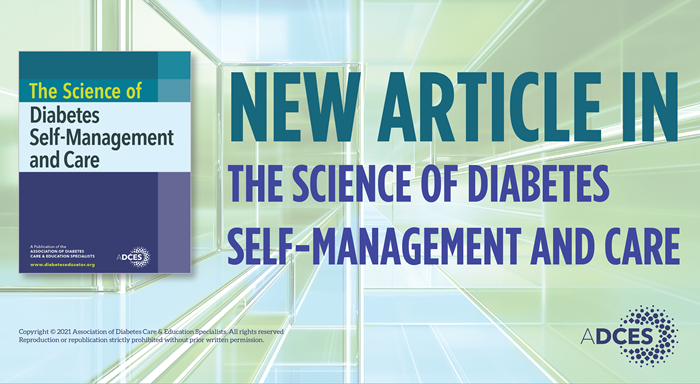Breaking Down the Latest Research on Socioeconomic Challenges in Diabetes Care
Jun 3, 2021, 06:00 AM
By Jill Schramm, DNP, FNP-C, BC-ADM, CDCES
One of the opportunities we face as diabetes care and education specialists is a way to assist people with diabetes in addressing self-care management barriers. Individuals that are affected by poverty and lower incomes tend to have higher rates of diabetes. Given that a large portion of our patients experience health disparities, it is our goal to help them overcome many of the challenges they face with food insecurities and access to the medications that they need.
In my rural practice, I see many with limited income and resources, ranging from ranchers to Native Americans. Not only do we have the socioeconomic barriers to consider but also the individual’s cultural preferences. Many of my patients decline nutrition care referrals as they feel that they will not be able to afford the healthy foods that are recommended. Health People 2030 places a strong emphasis on the need to address social determinants of health, access to health care and to reduce the number of individuals who cannot obtain prescriptions medications when they need them.
There have been several studies conducted on what healthcare professionals believe are effective interventions to assist people with diabetes who face disparities and the results are eye-opening. For example, interventions designed to address food insecurities such as food pantries, medically tailored meals, and fruit and vegetable prescription programs were not shown to have any significant effects on glycemic management or A1C levels. Further, the delivery of self-care management education by community health workers was found to provide links to community resources that address unmet social needs. However, the USDA SNAP benefit did not have a significant impact on glycemic improvement.
The study identified three primary themes:
- Food and nutritional resources that are insufficient to support healthy eating.
- Nutrition education lacking sensitivity for socioeconomic challenges.
- Food banks as a resource since they often do not have healthy foods.
- Recommended meal plans that did not fit their lifestyle.
- Socioeconomic circumstances that pose a challenge to healthy eating.
- Struggles with cooking at home.
- Family member diet restrictions/preferences.
- Costs of food, increased costs of living (rent, gas).
- Challenges finding time to cook, therefore eating more fast food and processed foods.
- Four broad categories of patient-preferred interventions were identified:
- Group-based learning i.e. cooking class, support groups. As well as the peer support and advice that group-based learning offers.
- Health food access resources.
- Sensitive health coaching.
- Nutritional counseling.
These trends are critical components to understand when developing strategies to address socioeconomic challenges to care in your practice. Findings from this study suggest that people with diabetes desire social, community, peer-to-peer support and group-based medical visits. They also identified the need for individual and system-based support with regards to nutritional education and food assistance resources.

ADCES Perspectives on Diabetes Care
The Association of Diabetes Care & Education Specialists Perspectives on Diabetes Care covers diabetes, prediabetes and other cardiometabolic conditions. Not all views expressed reflect the official position of the Association of Diabetes Care & Education Specialists.
Copyright is owned or held by the Association of Diabetes Care & Education Specialists and all rights are reserved. Permission is granted, at no cost and without need for further request, to link to, quote, excerpt or reprint from these stories in any medium as long as no text is altered, and proper attribution is made to the Association of Diabetes Care & Education Specialists.
HEALTHCARE DISCLAIMER: This site and its services do not constitute the practice of medical advice, diagnosis or treatment. Always talk to your diabetes care and education specialist or healthcare provider for diagnosis and treatment, including your specific medical needs. If you have or suspect that you have a medical problem or condition, please contact a qualified health care professional immediately. To find a diabetes care and education specialist near you, visit DiabetesEducator.org/Find.